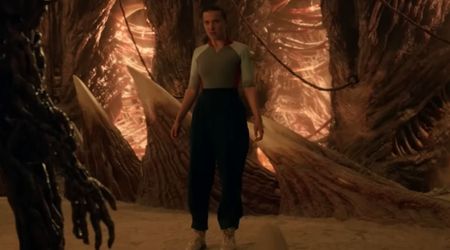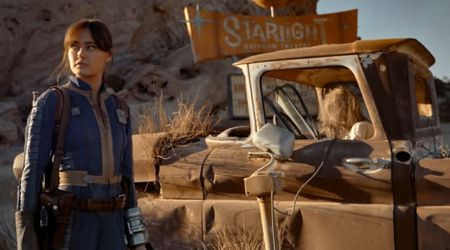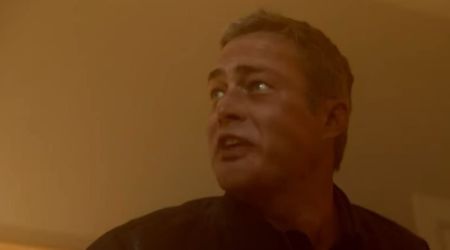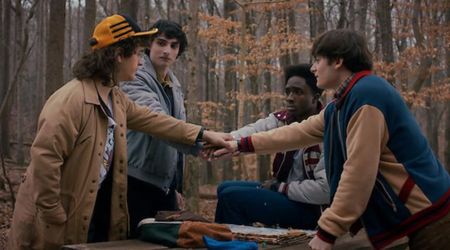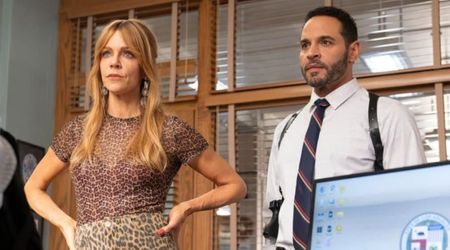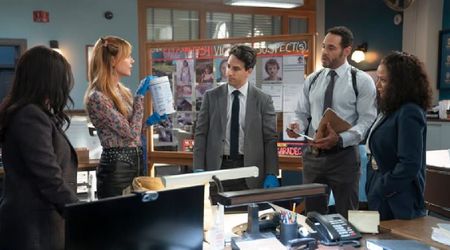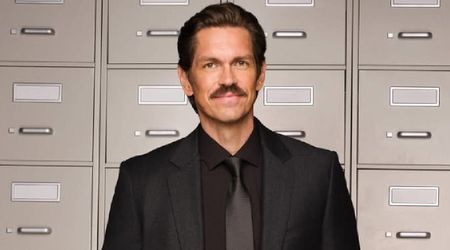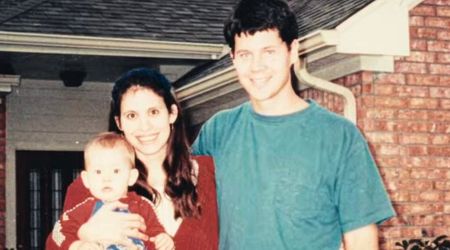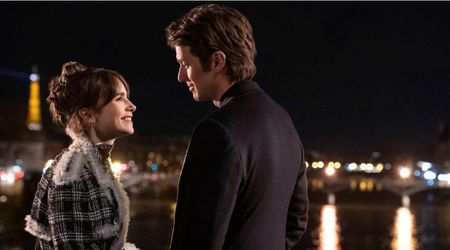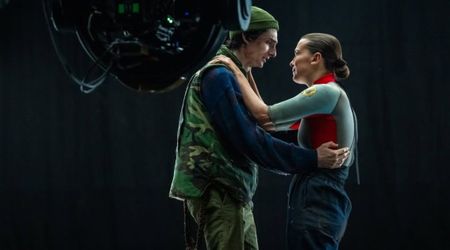'Horse Girl' unmasks schizophrenia and depression to start a new conversation about mental health awareness

Alison Brie can spellbind you with the magic of her voice. The idiosyncrasies of Diane Nguyen from 'BoJack Horseman' come alive in Netflix's new psychological drama 'Horse Girl', where she plays Sarah, a socially awkward craft store employee who has mental issues. Brie is also one of the writers in the film.
The 37-year-old actress unleashes power and poignance in a role that digresses from the known effects of mental health issues and shows the consequences of letting your mind take control over you. The more you watch Brie, the more does it bring back the same twinkling innocence and crippling anxiety from Diane in 'BoJack Horseman' and yet it will be a totally different experience.
Sarah seems content in her lonely world: she works hard at the craft store, offers advice to young riders at a barn where her beloved horse Willow resides and binge-watches her favorite sci-fi TV series 'Purgatory'. But there's something eerie about her. She sleepwalks in the kitchen, stares blankly at the wall and finds herself in places that she doesn't recall going to.

Written and directed by Jeff Baena, 'Horse Girl' is an ambitious attempt to uncloak the misery of schizophrenia and psychotic depression. Sarah slowly falls into the web of melancholia in her own mind and attributes her actions to "an overactive imagination" or "time loss" and even the concept of being a "clone" of her grandmother.
The movie reflects what happens to people who don't jive with notions of reality and shows how they accidentally slip into a parallel universe. The chaotic scenes towards the end will make you shiver and even give you the heebie-jeebies. While the movie follows a complicated plot that makes you wonder what really transpired in the end, it is simple at its core: 'Horse Girl' cocoons around the consequences of not admitting that we're depressed — that we need help.
However abstract it may be, the darkly humorous psychological thriller about a woman’s search for the truth has managed to start a new conversation about mental health awareness on Twitter. "#HorseGirl not what I expected at all! Seriously weird, but clever! A totally different way of looking at mental health issues #MentalHealthAwareness," one viewer noted and another posted, "#HorseGirl was such an acid trip. Our minds are so unbelievably powerful... Scary that mental health in our country is so blatantly disregarded."

"I seriously enjoyed #HorseGirl. A stunning performance from Alison Brie that explored mental health, especially female mental health, which is so rare in film (when it's not related to 'hysteria' bullshit). It was weird, but I'm glad it was weird. Loved it," another tweet read.
Many connected with the movie at a deeper level. "I grew up doing them and my daughters and I still do all of them except shoot a shotgun. No need to hunt or scare off wildlife in my area these days. #HorseGirl for life," one fan said and another posted, "Saw my own experience reflected back in the performance. Before you're medicated, when you have an adverse reaction, before you find that magic combination of pills that keeps you if not happy, then ok, and stable. I've had severe depression and anxiety as long as I can remember. It got really bad in my late teens, and I completely shut down for 4 years. I appreciated seeing the panic, confusion, dissociation, pain that I've experienced portrayed."
Several viewers admired Brie's brilliant performance: "Just saw #HorseGirl on Netflix and was very impressed. Really sharp script and direction, beautiful cinematography and a fantastic performance by Alison Brie. Recommended." Another tweet read: "For real @alisonbrie is crazy endearing in this. Her character being so likeable and wholesome is making the weird ominousness of this film all the more unsettling #HorseGirl."

It is no surprise then when Brie says that the movie was inspired by her real-life family history with paranoid schizophrenia and depression, as well as her fears about her own psychology. "In my own personal struggles with depression, I know the feeling of being helpless, feeling powerless, feeling alone. Right before I wrote this, I went through the deepest bout of depression in my life," she said in a Vulture interview.
The bizarre ending of the film is actually a cry for help. For Sarah, accepting her depression means going on the same path as her mother, who committed suicide. Remember how she tells the psychiatrist she's a 10 when it comes to anxiety but only 1 on depression if she had to evaluate her behavior on a scale from 1 to 10? She just doesn't want to accept it and, therefore, thinks it is easier to believe she exists in a world that only she understands.
A silent message to show the pitfall of depression, 'Horse Girl' is a pathbreaking work of art. As uncomfortable as it may be, the movie is worth a watch to grasp the adversities of declining mental health.

